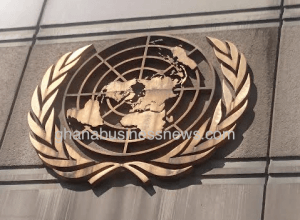A new UN tax convention to tighten efforts against illicit financial flows
 This month, the world could witness a radical shift in the international political landscape. A new United Nations convention for tax cooperation would fix the broken rules-based system of international governance.
This month, the world could witness a radical shift in the international political landscape. A new United Nations convention for tax cooperation would fix the broken rules-based system of international governance.
Africa loses billions of US dollars to tax avoidance that could pay for climate transition, infrastructure education and health urgent needs. If the continent fails to broaden its tax base and increase the resources it collects at home, it will be even more difficult to tackle the simultaneous crises of climate change, food insecurity, conflicts, and external.
The African Union estimates that the continent loses some $90 billion a year in illicit financial flows. It also loses a further $220 billion a year through tax breaks that disproportionately benefit the super-rich. Taken together, these are equivalent to a staggering $390 billion a year, Patrick Olomo, policy adviser to the Nigerian-led group, told at the IMF/World Bank meetings in Washington in October.
Africa is a remarkably diverse continent, with countries ranging from low-income to high-income: However, 33 of the 45 countries on the UN’s list of Least Developed Countries for 2023 are African. And 20 of African low-income countries are facing bankruptcy or struggling with high levels of debt. Some recent examples of how these countries share the same challenges include: Angola’s finance minister, Vera Daves de Sousa, said that all of the country’s tax revenue was only enough to pay salaries and service debt. Nigeria’s Minister of Justice, Lateef Fagbemi, said that the country loses an average of $18 billion a year to illicit financial flows. Between 2009 and 2018, South Africa will have lost $20 billion a year due to tax avoidance and evasion by the super-rich.
So, development financing is in desperate demand in Africa while its money is literally on the run.
There is a way out of the existential dilemma of how to raise the money needed to build infrastructure and decent public services and deal with climate change. That way is to improve “fiscal space” by fairly taxing multinationals operating on the continent, cross-border services and the richest, a small but growing segment of the population that is largely undertaxed.
Capitalism in Africa has allowed an immense accumulation of wealth in the hands of few oligarchs. According to Henly & Partners 2024 Africa Wealth Report, “the continent is home to 135,200 millionaires, 342 centimillionaires and 21 billionaires, with a combined investable wealth of $2.5 trillion”. Five countries account for 90% of the continent’s billionaires: South Africa, Egypt, Kenya, Nigeria and Morocco.
These individuals easily de-localise their wealth, spreading it across different assets in different jurisdictions, under layers of companies, trusts and other legal arrangements. Much of it ends up in the luxury real estate market of big cities of the Global North. They exploit the loopholes of the system to feed the voracious machine of wealth accumulation abroad.
The extreme concentration of wealth and of impunity burst out in numerous financial scandals, forcing the OECD to examine how to correct global distortions after the 2008 global crisis. Nevertheless, ten years of the so-called Inclusive G20/OECD Framework process have ended in disappointment for the emerging countries that were at the very origin of the process. Populist extremism is waiting to capitalise on unfulfilled promises and to exploit the discontent that arises from such disillusionment.
In Africa, effective and fair taxation of corporations and the rich is essential. Multinational corporations and the wealthy elite often exploit tax loopholes, exacerbating income inequality. Illicit financial flows and tax evasion drain resources needed to enhance the resilience of African economies, making them vulnerable to economic shocks.
That’s why the African Union and other developing countries dissatisfied with the outcome of the “Two Pillar Solution” joined forces to move international tax negotiations to the UN.
The UN Framework Convention on International Tax Cooperation, which is about to be approved, is the appropriate instrument to address tax evasion and avoidance, capital flight and to achieve effective taxation of corporations and high net worth individuals. Several G20 countries that host the headquarters of most multinationals tried to block the initiative. Twice they have failed to twist the UN General Assembly vote.
So, things have gone well for the tax justice league so far.
This year, for the first time in the history of the G20, finance ministers agreed to cooperate to ensure that the super-rich are taxed. The G7 also agreed at least that under-taxation of the super-rich is a problem to fix. The UK government presented a budget that includes fair taxation of millionaires and corporations, and the conservative government of France agreed on the need for those at the very top to contribute what they should.
International tax cooperation is essential for African countries to be able to tax multinational corporations and their richest individuals without fear that they will simply move to other countries to avoid being taxed. Anti-tax evasion and avoidance measures agreed in a global scale are some of the means to address Illicit Financial Flows, as the same mechanisms are used for money laundering.
The OECD’s efforts to address tax avoidance by the rich and multinationals have been incremental but limited. The UN convention offers a critical opportunity to build on this progress and establish a more comprehensive and equitable global tax framework that fosters efficient mobilization of financing for development.
By Prof Léonce Ndikumana
